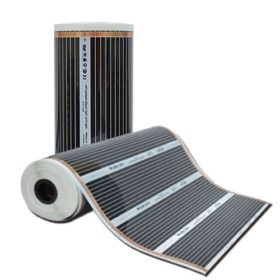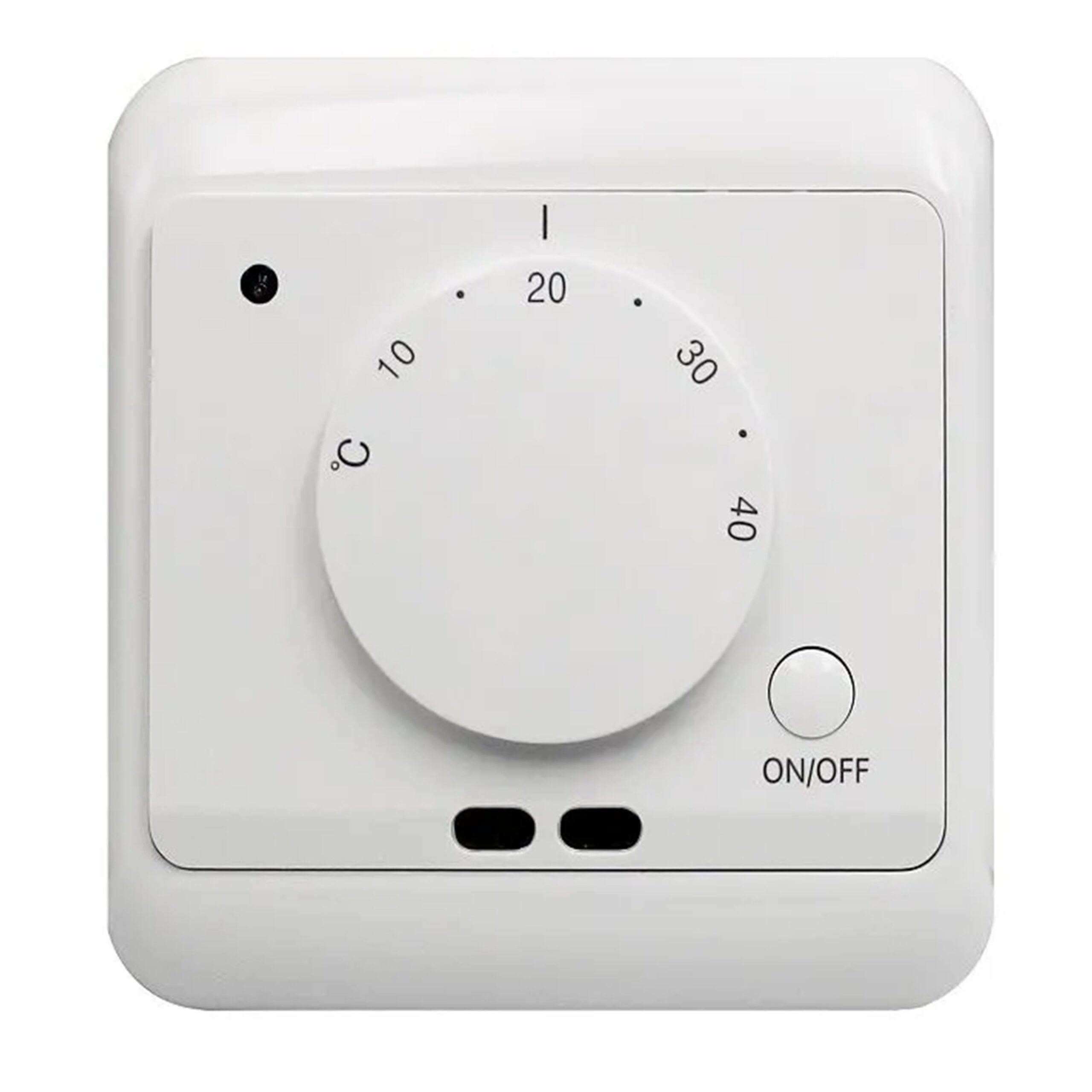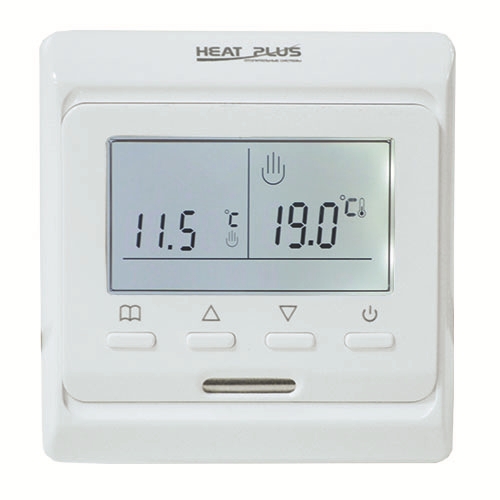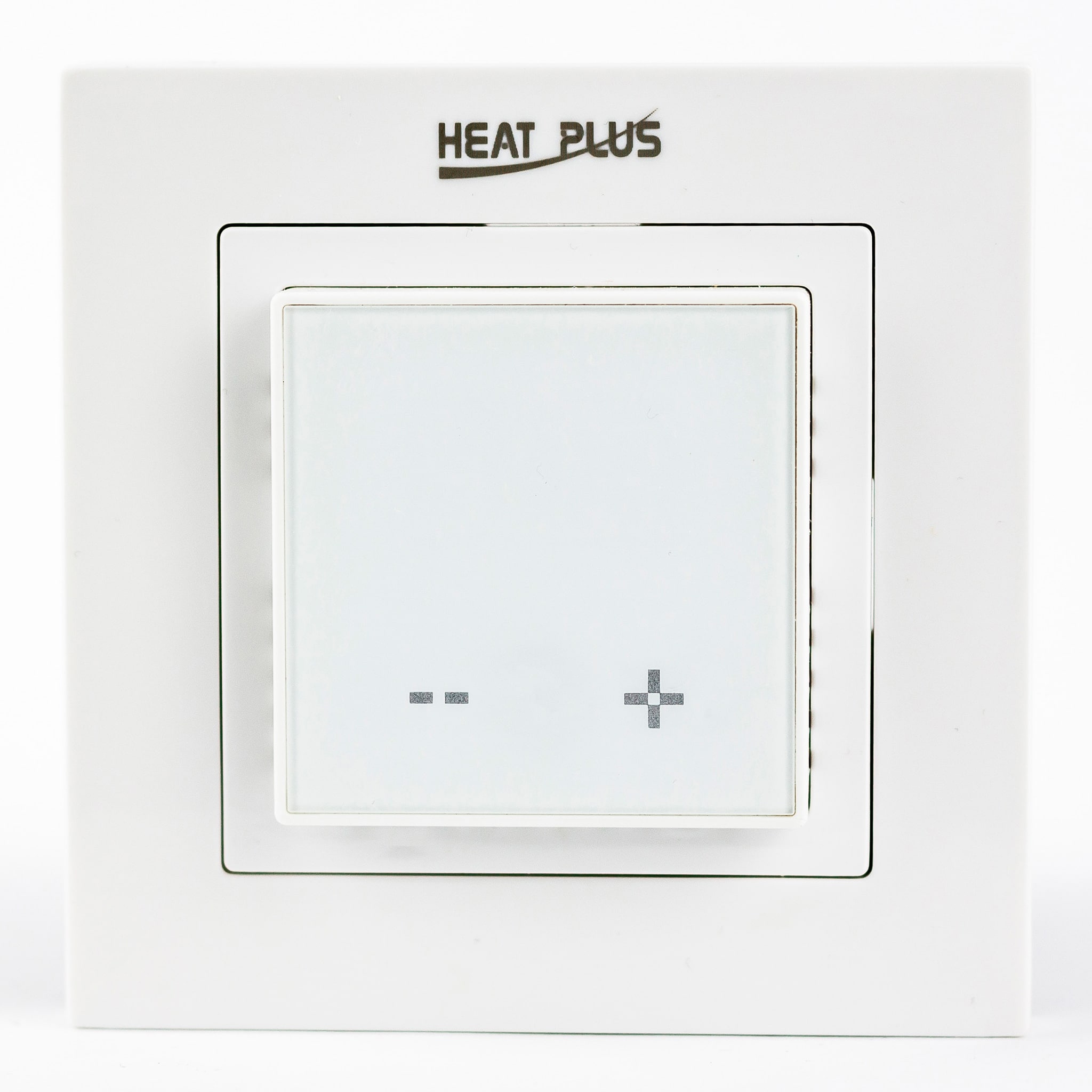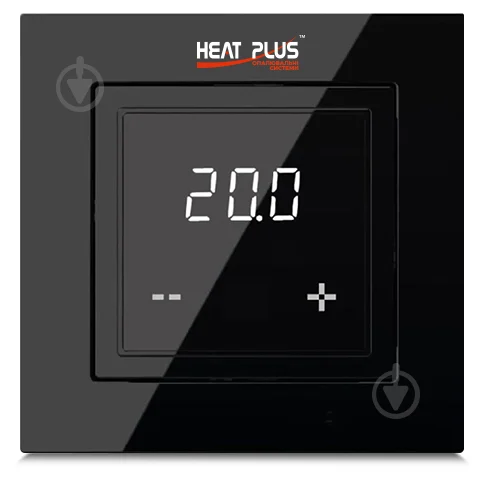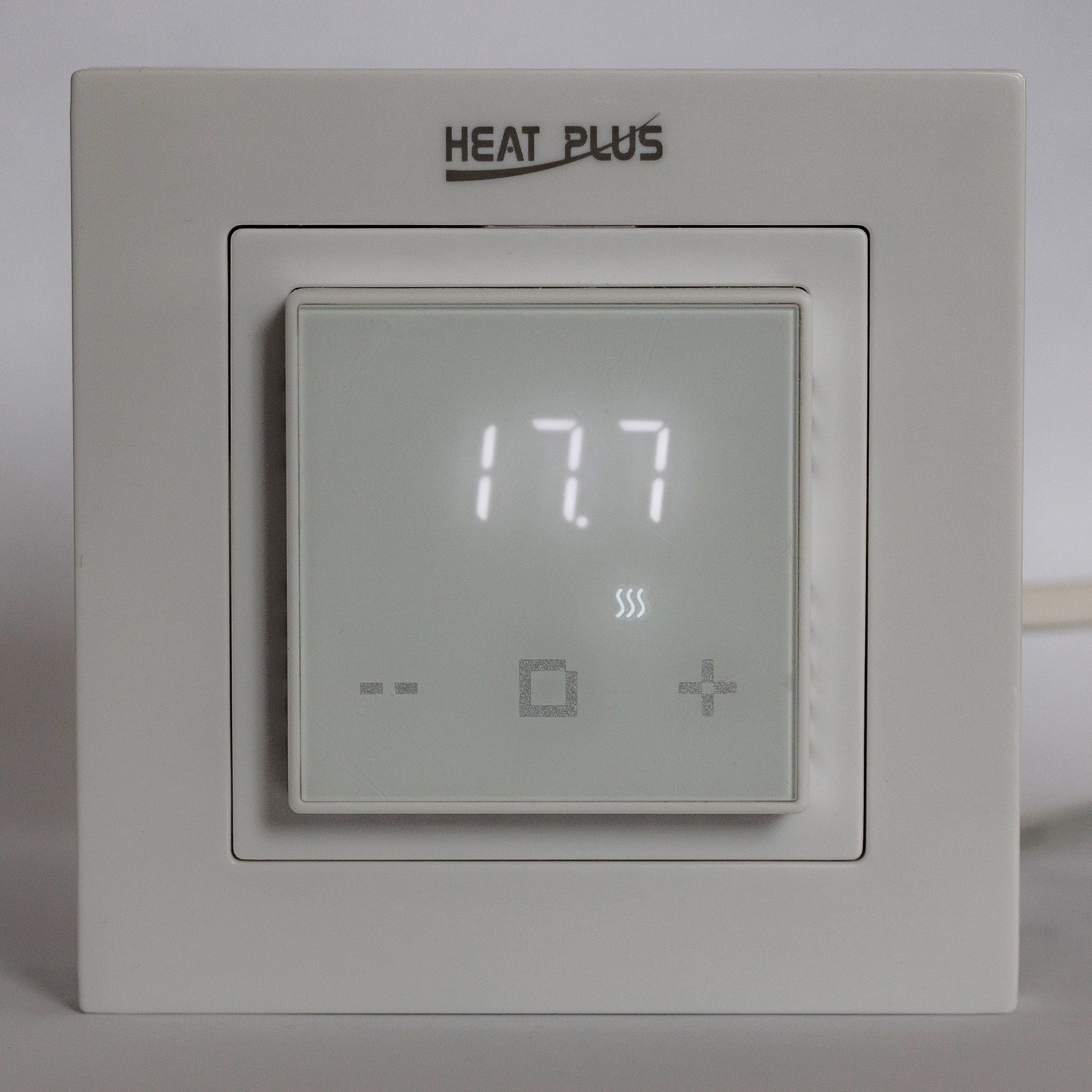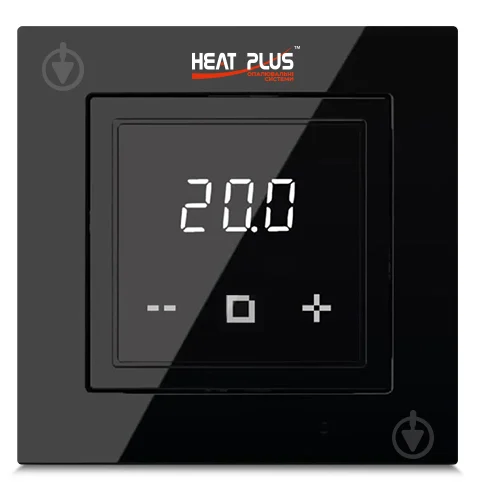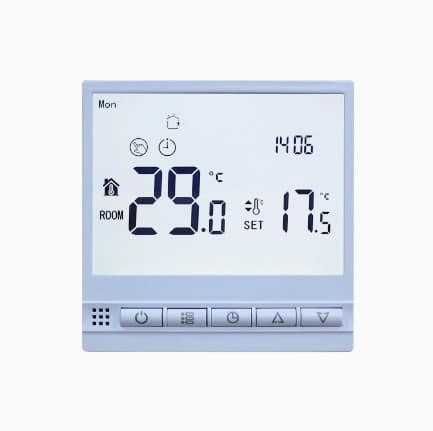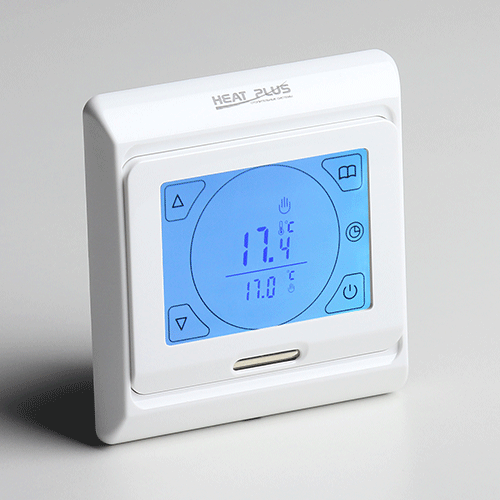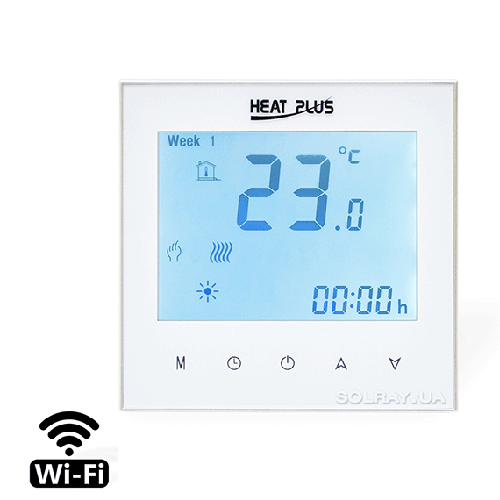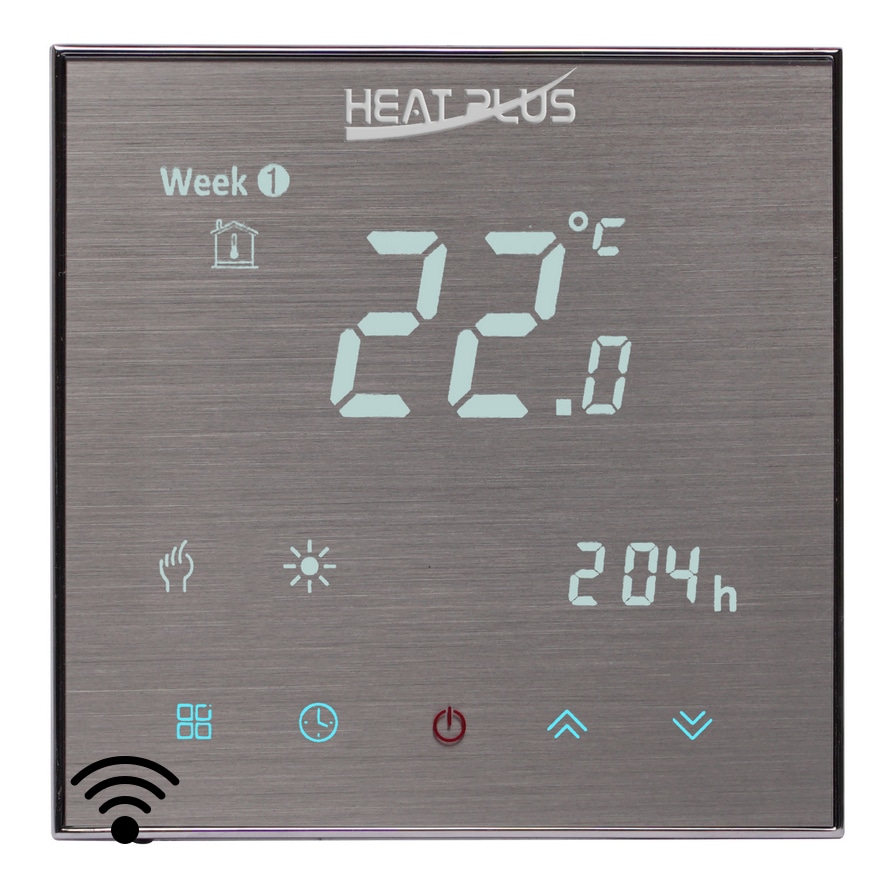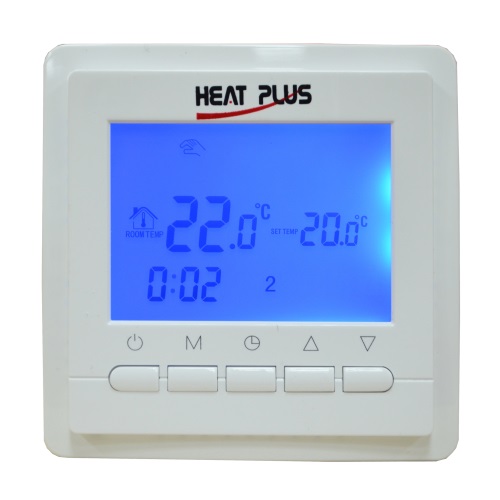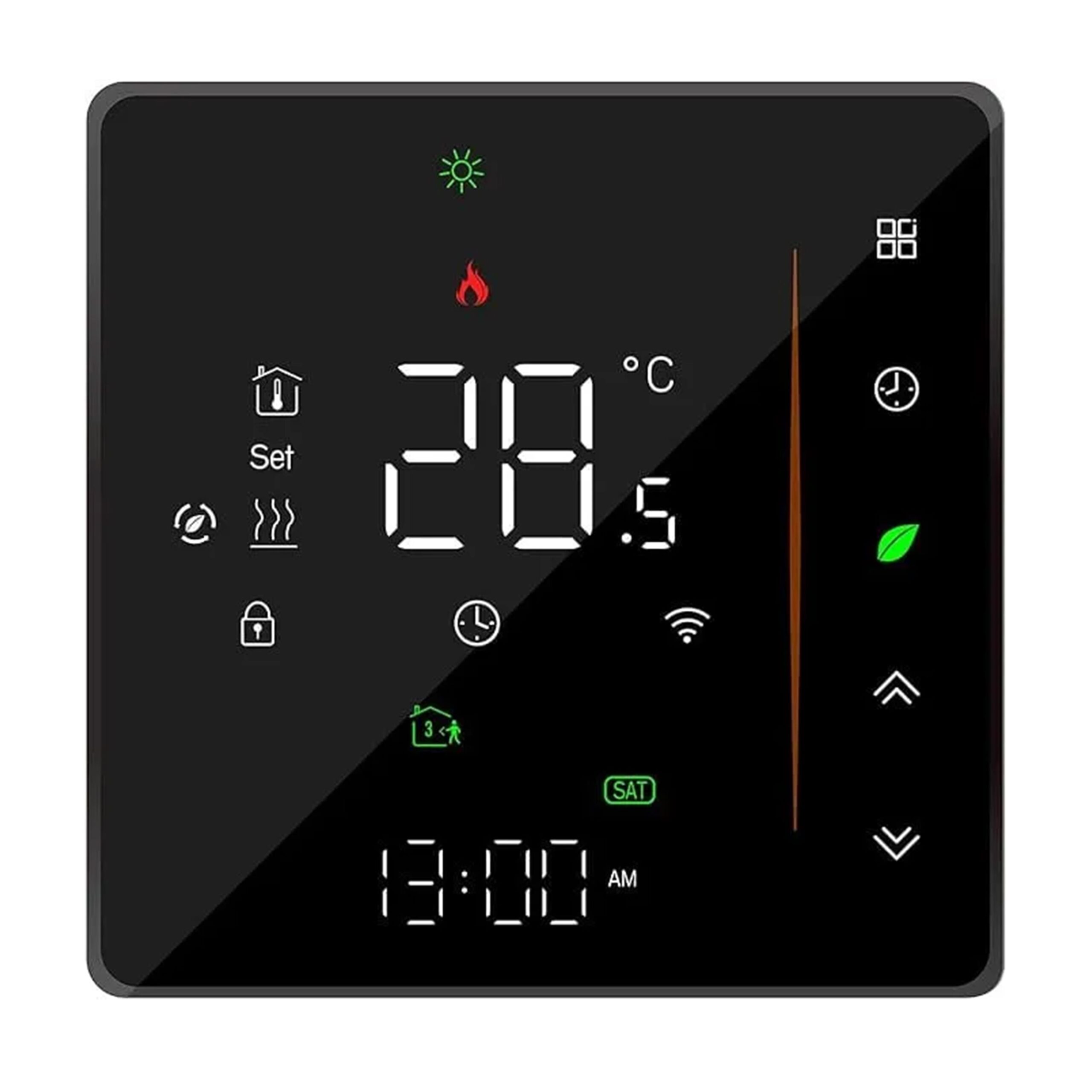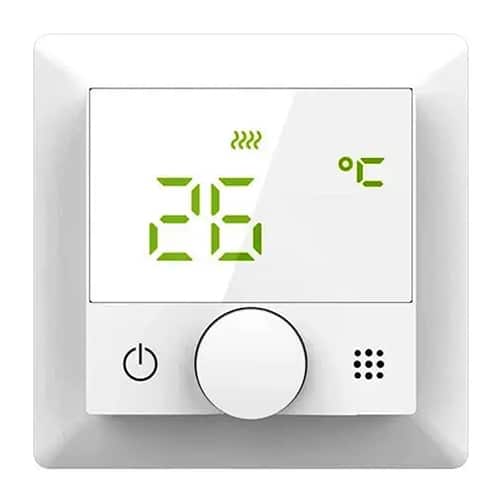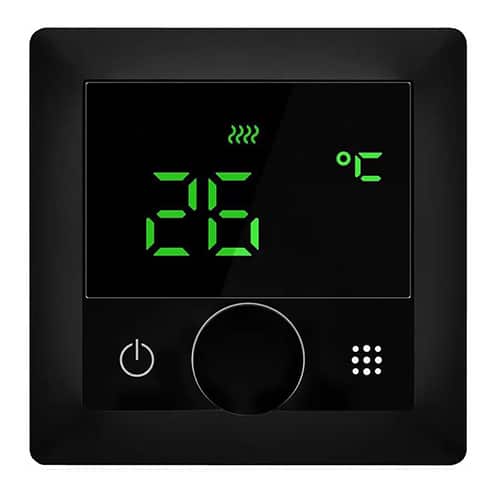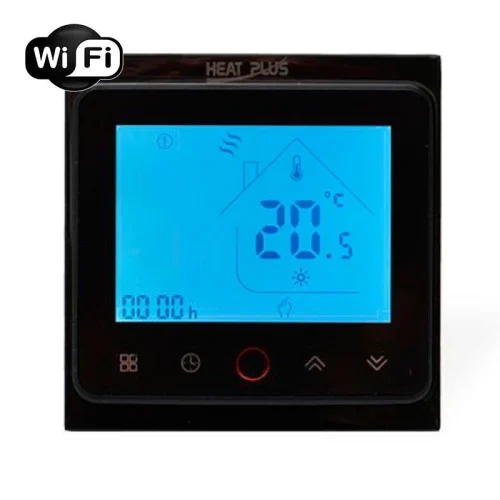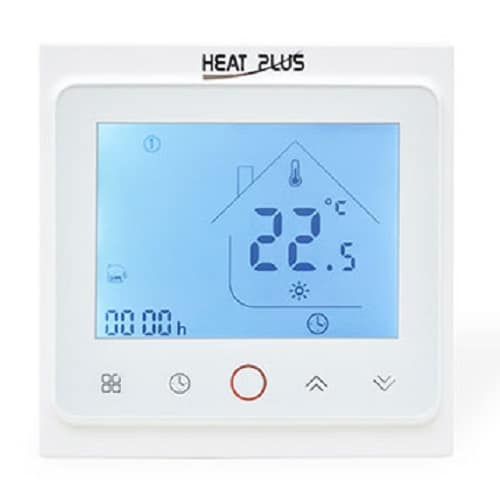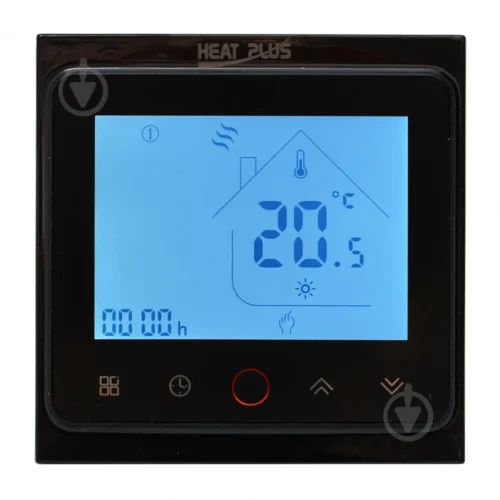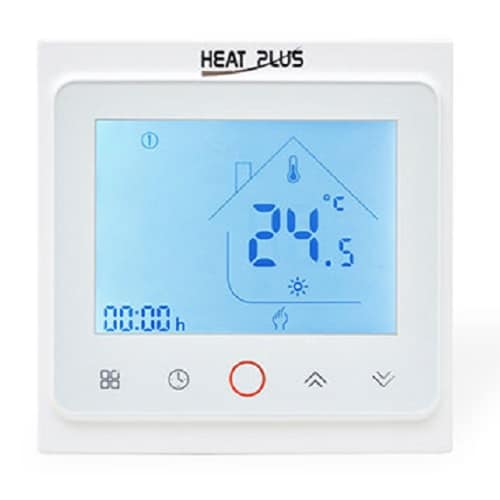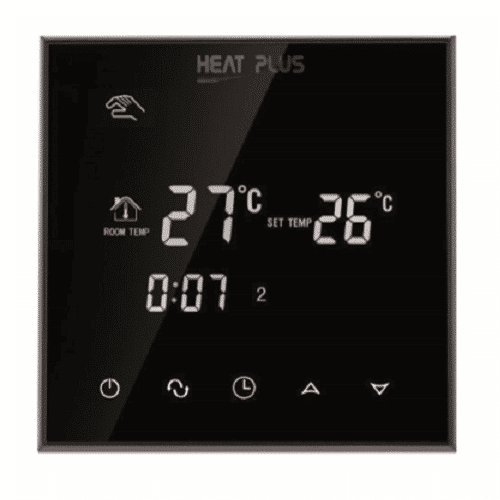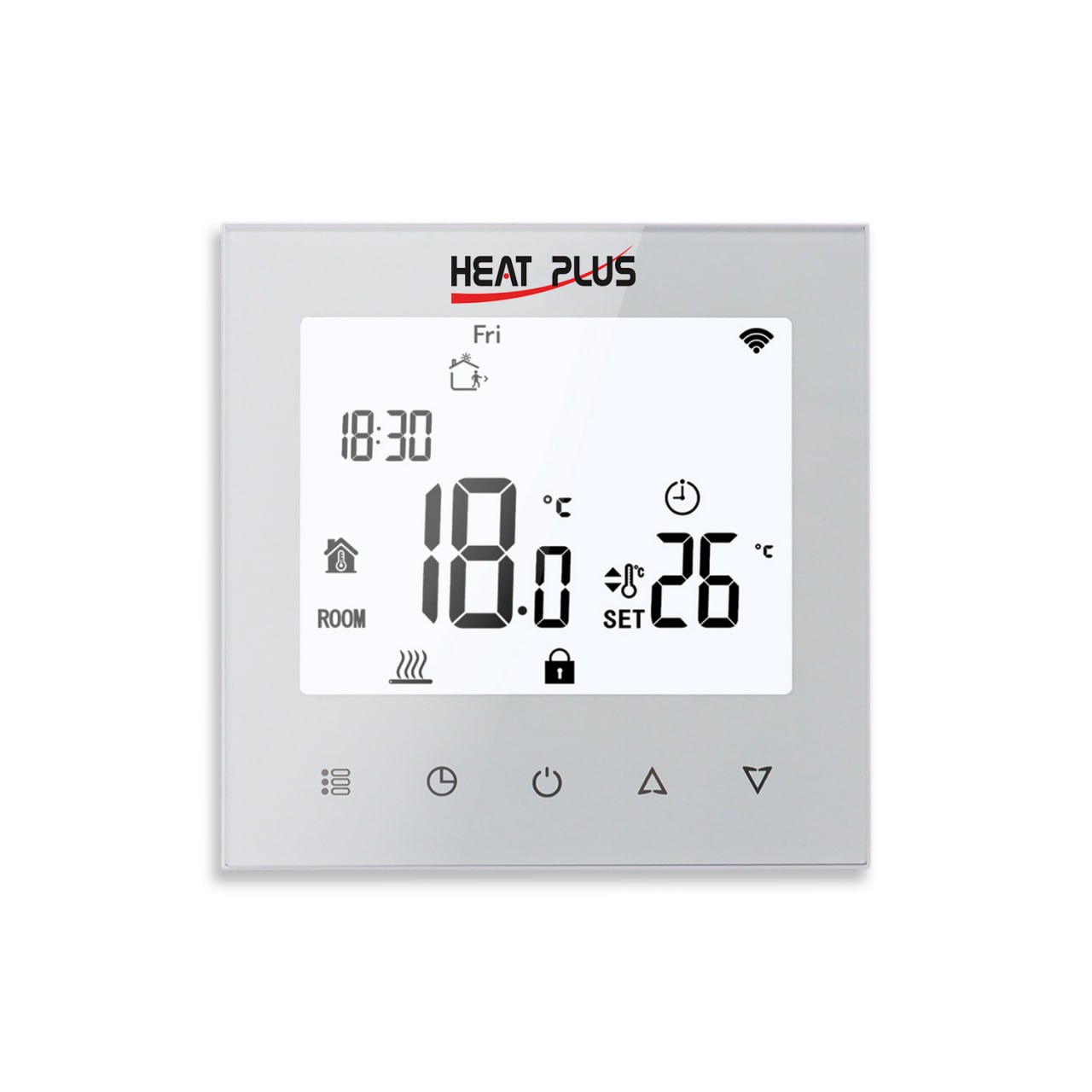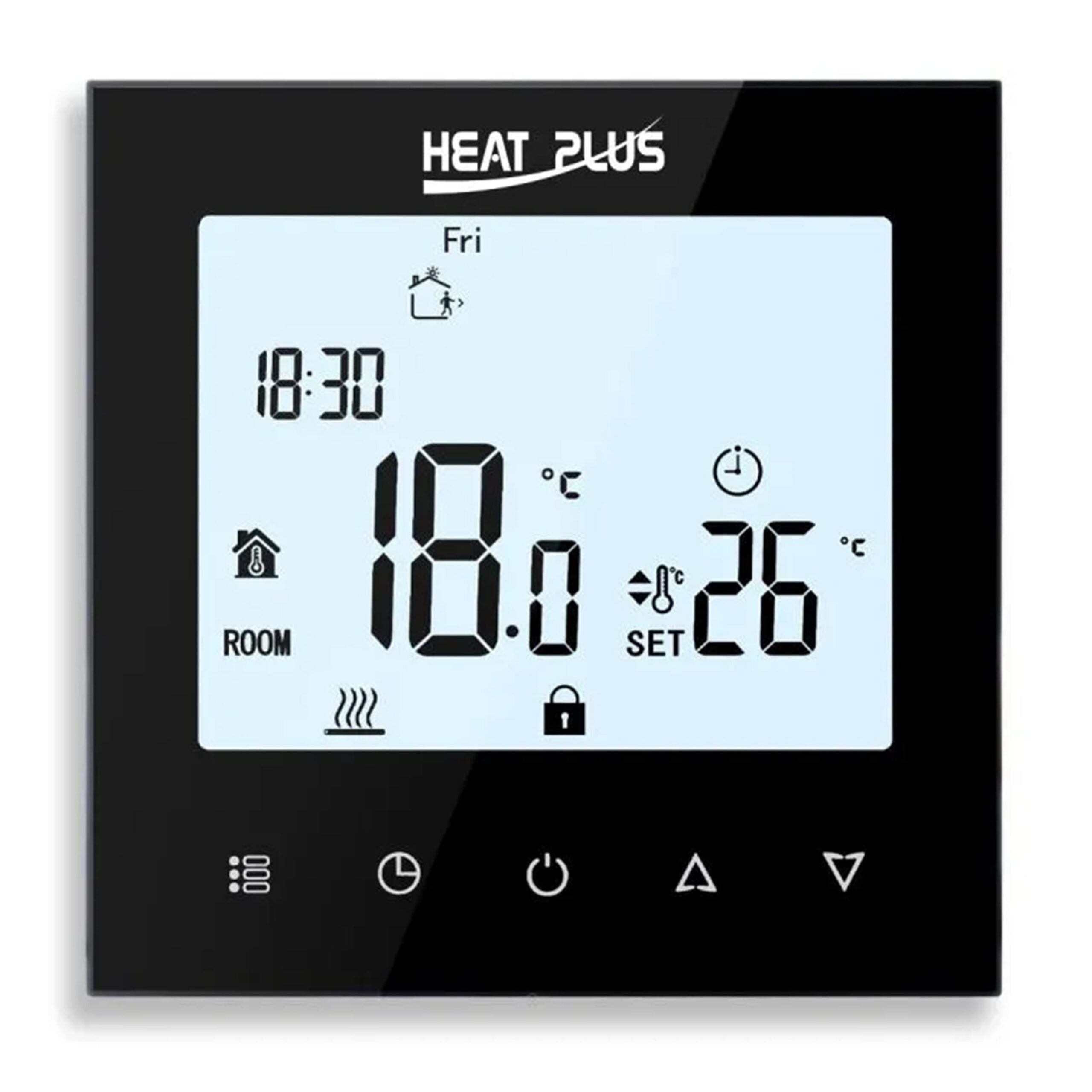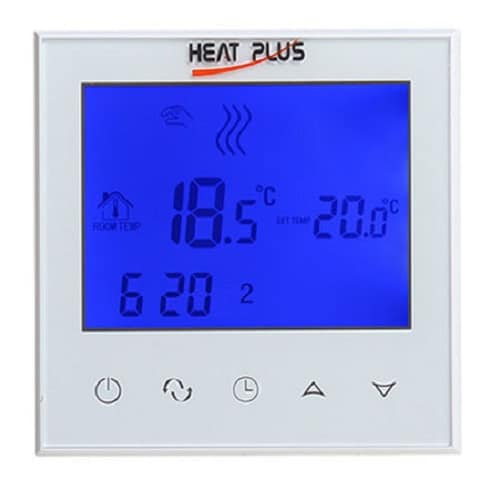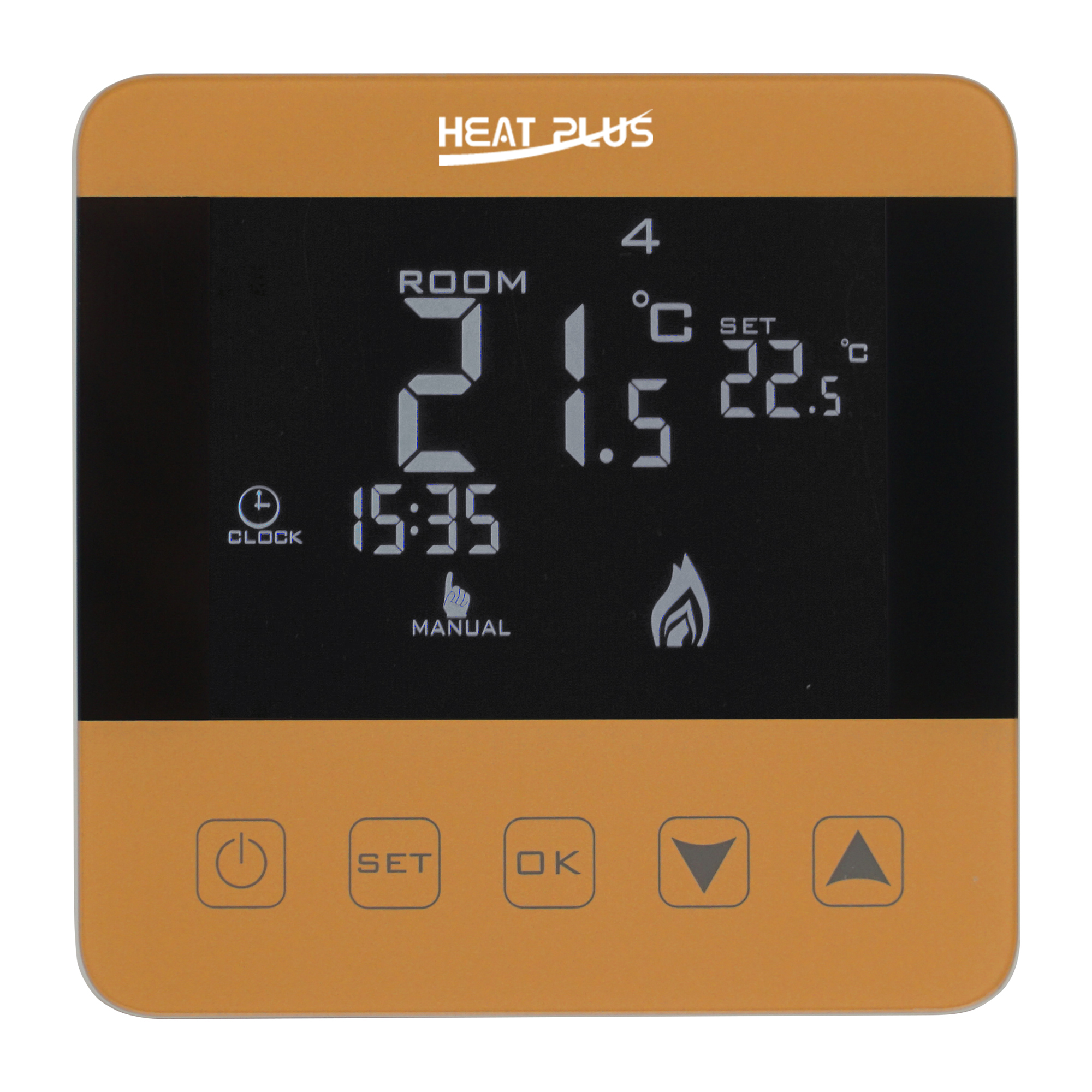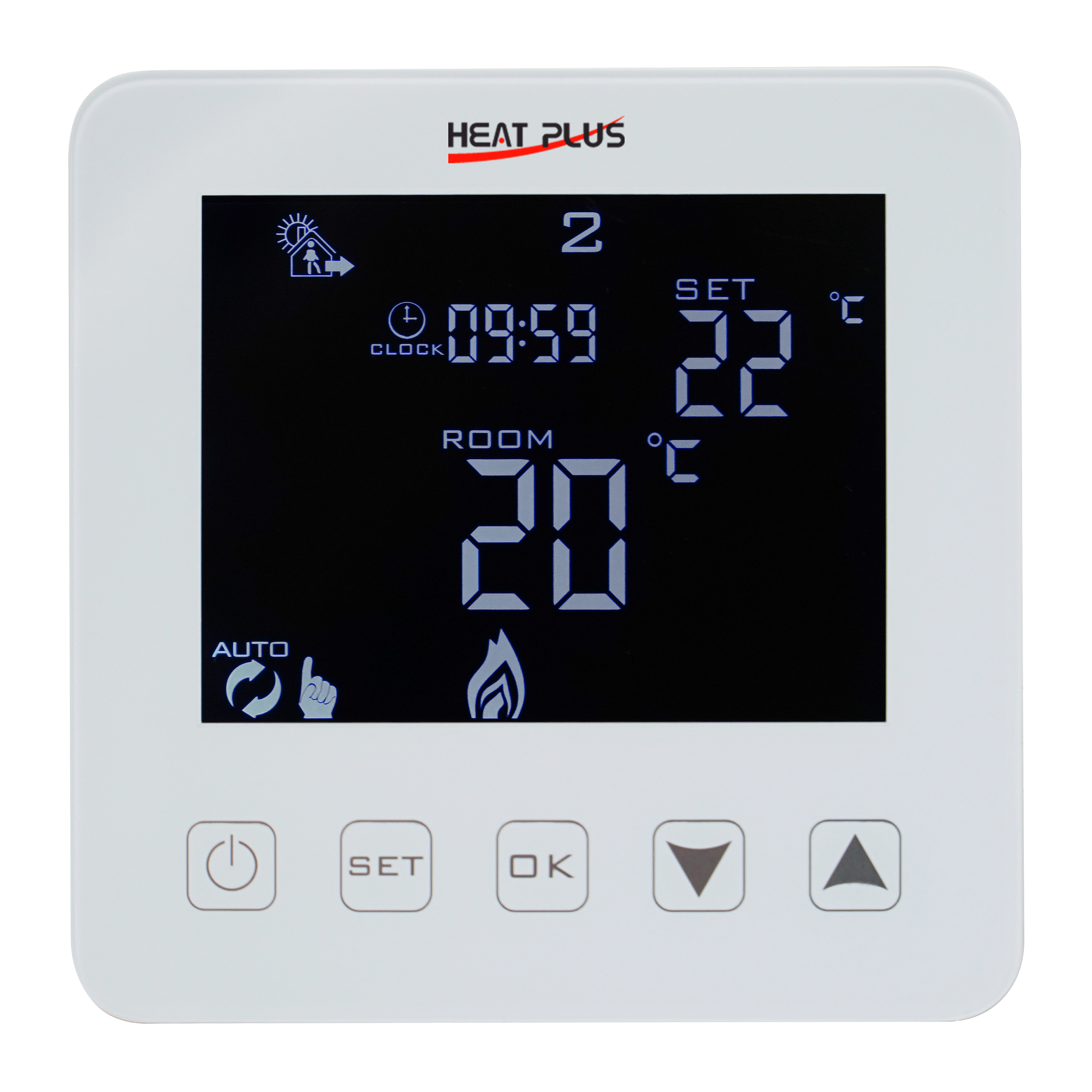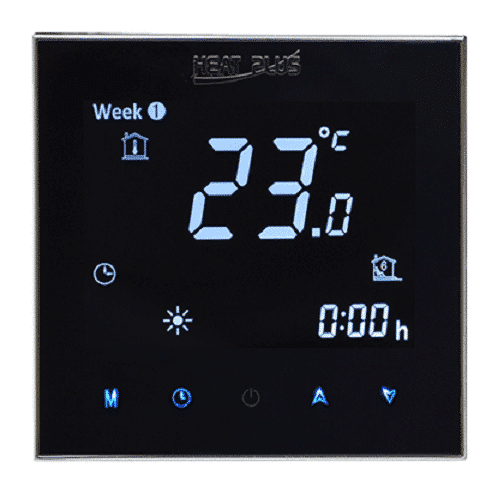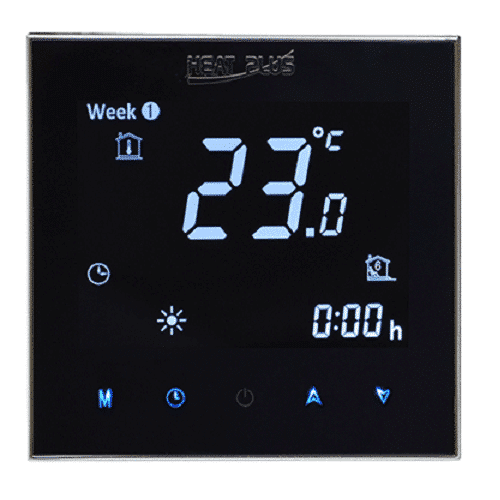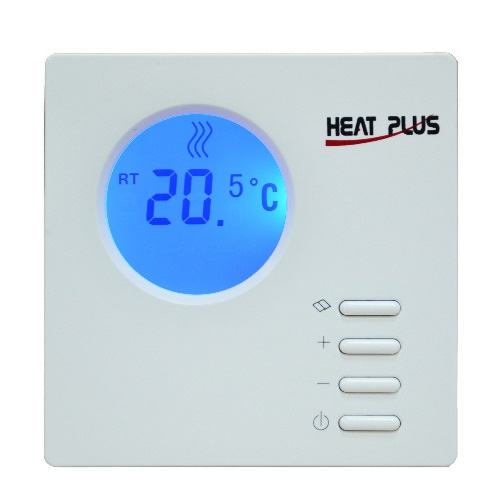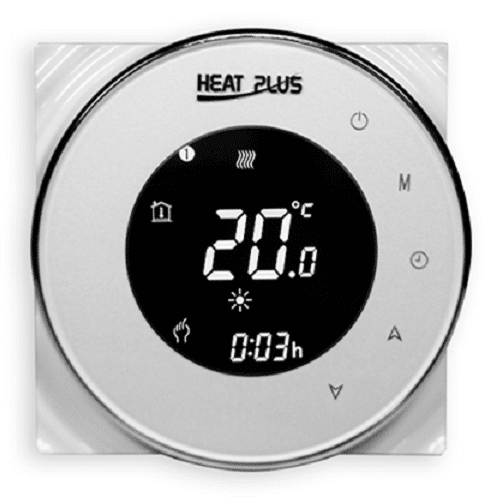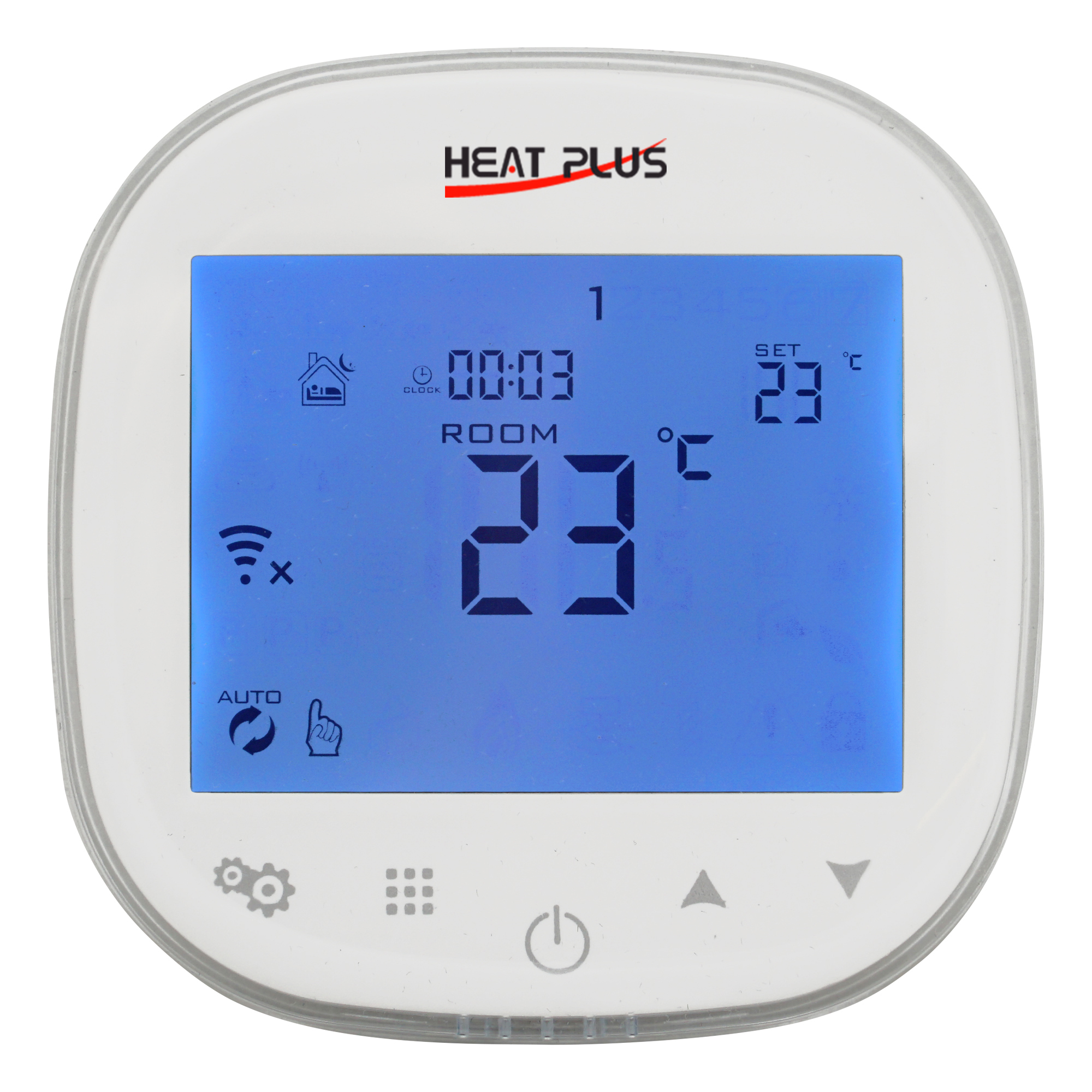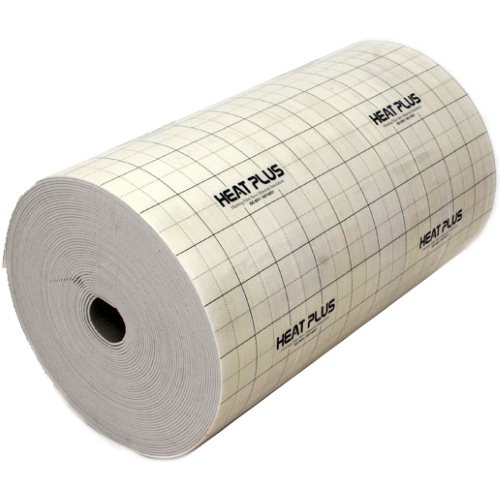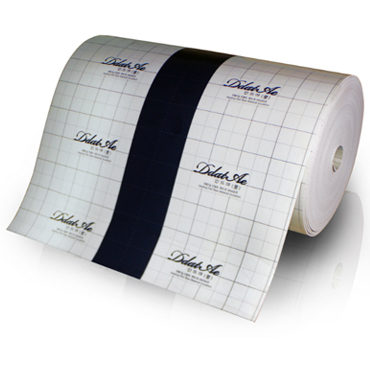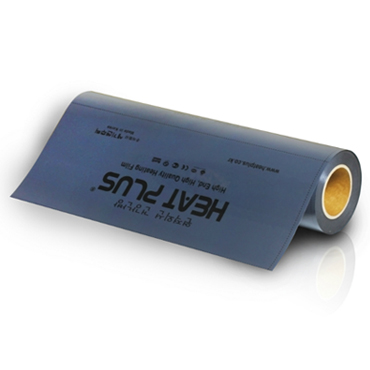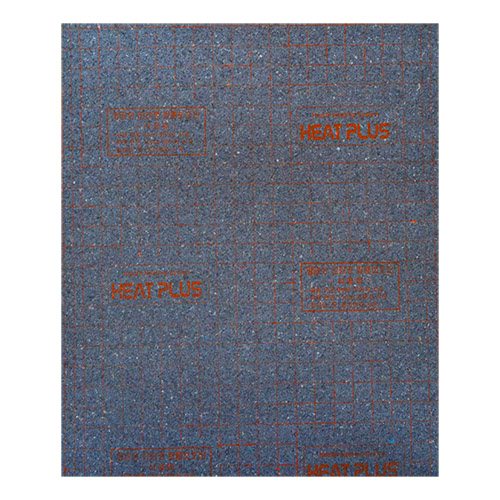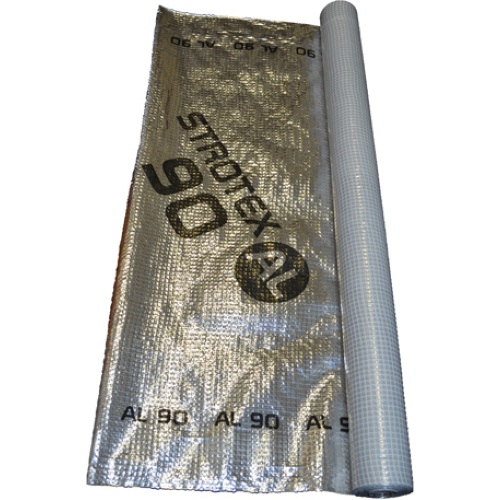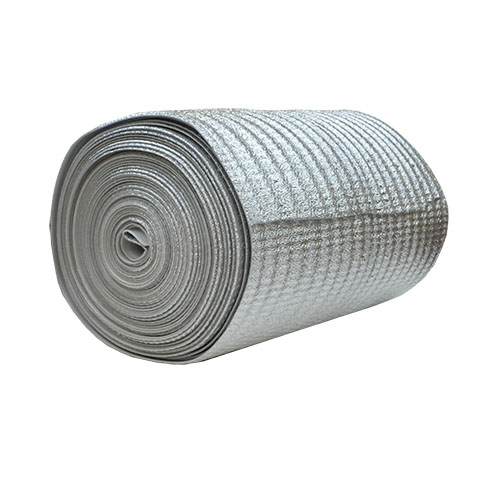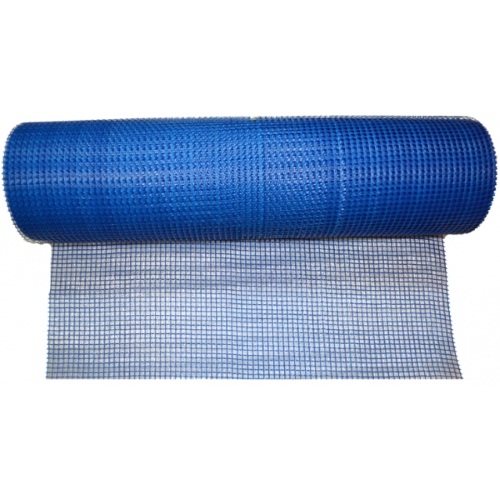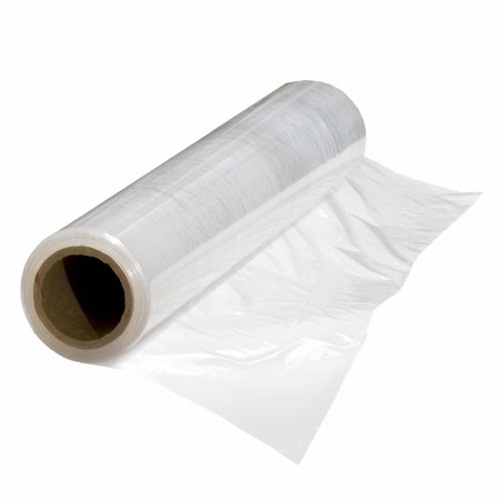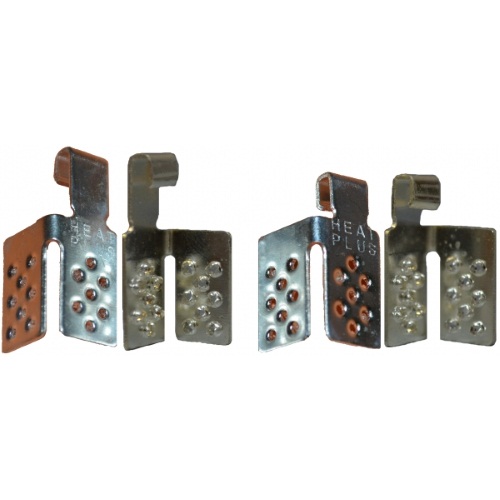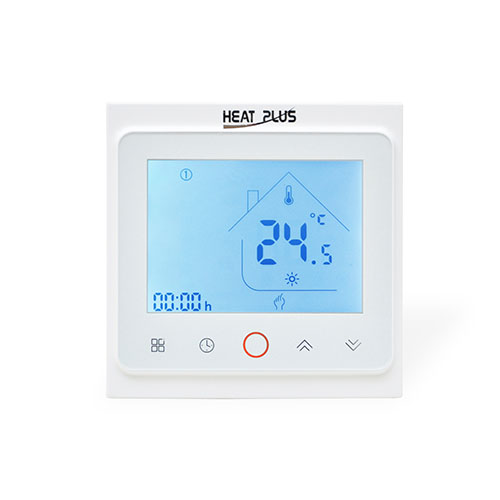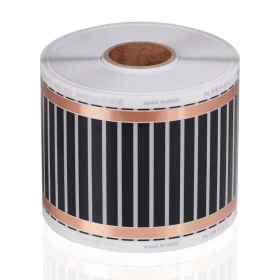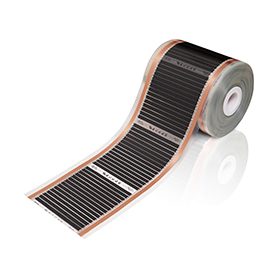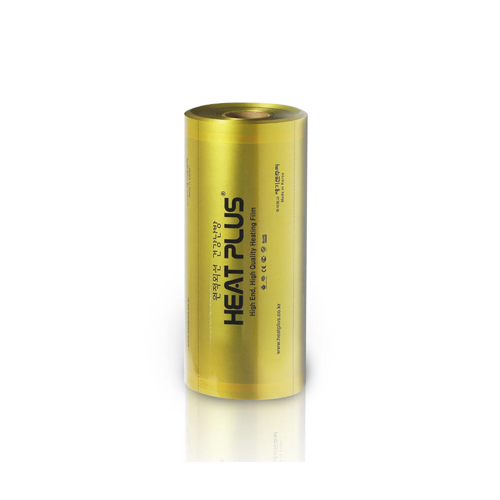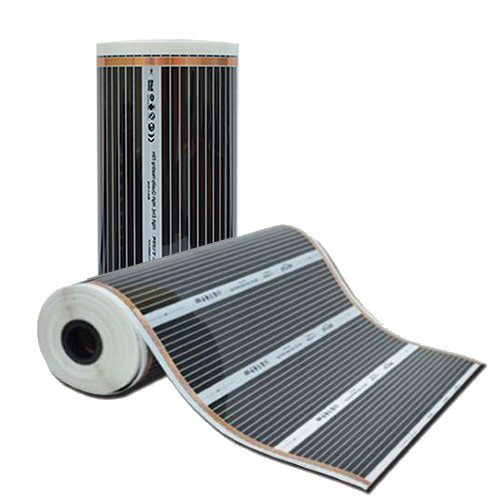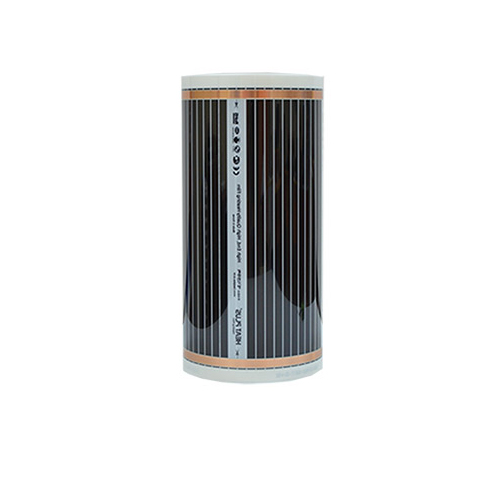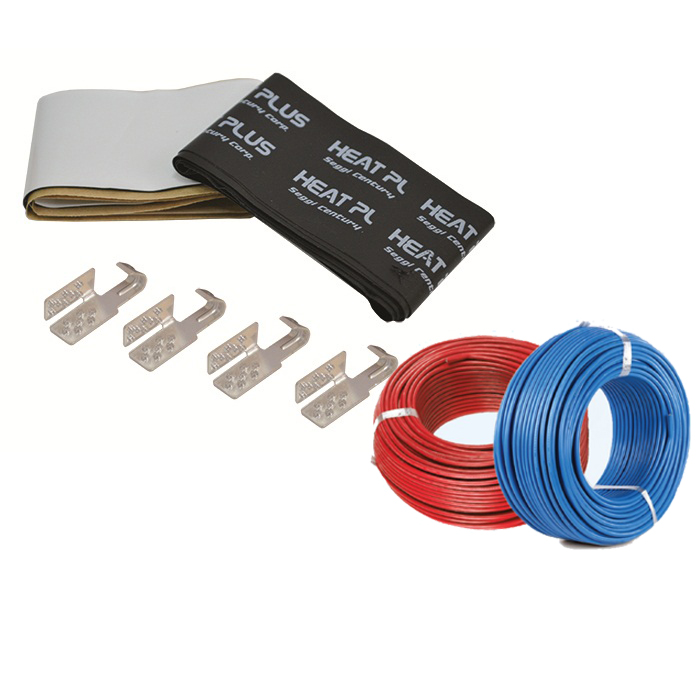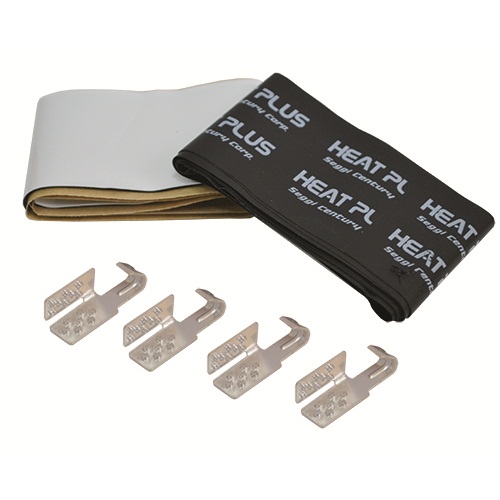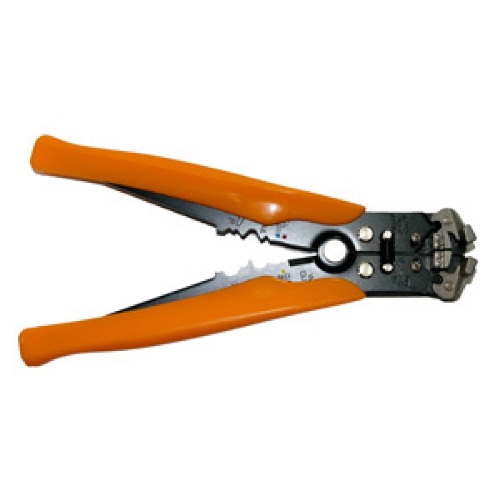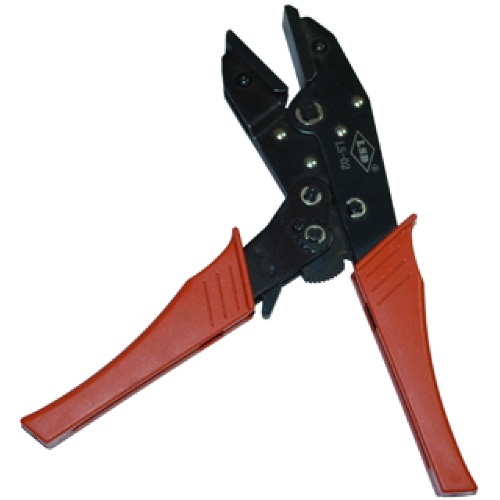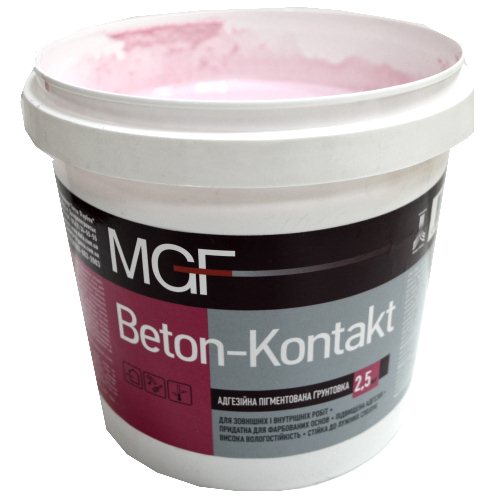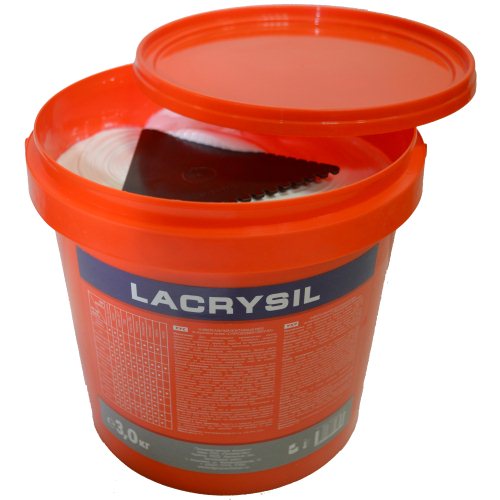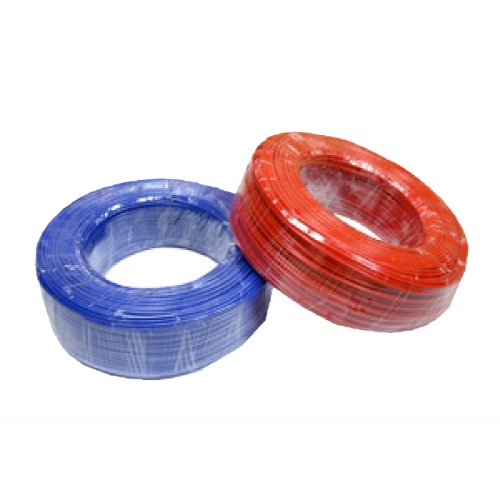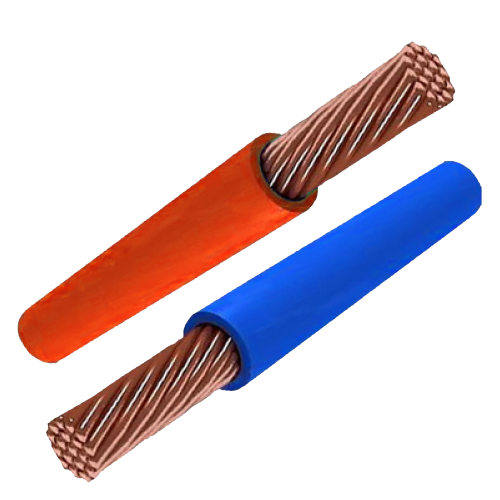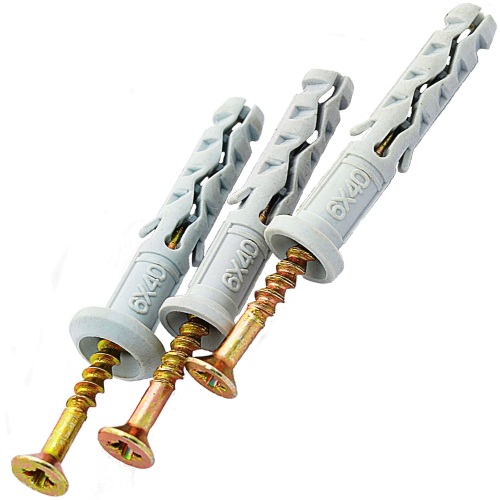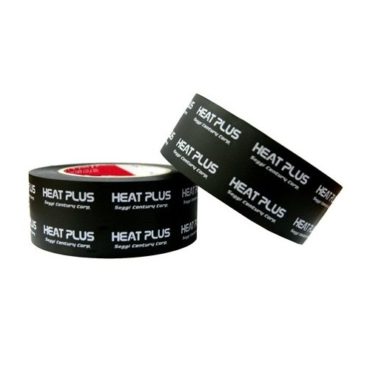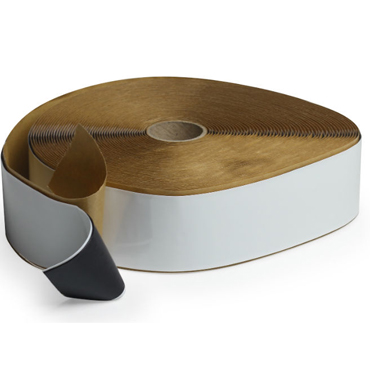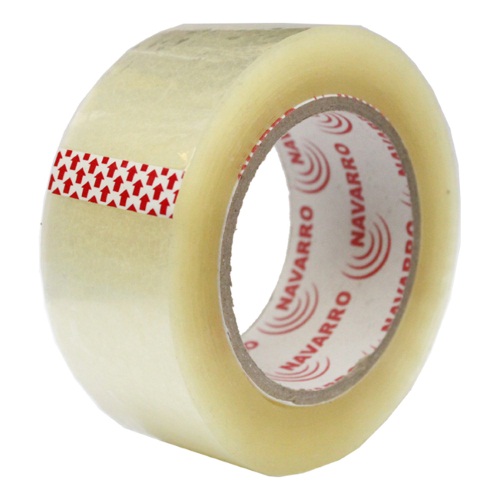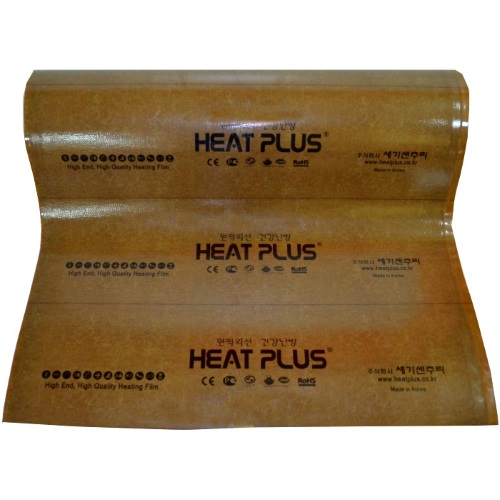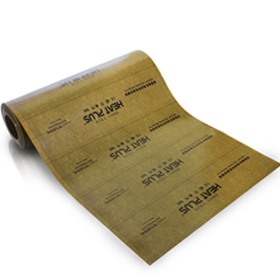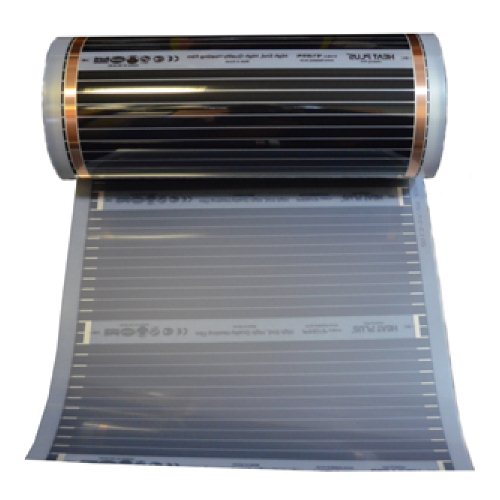
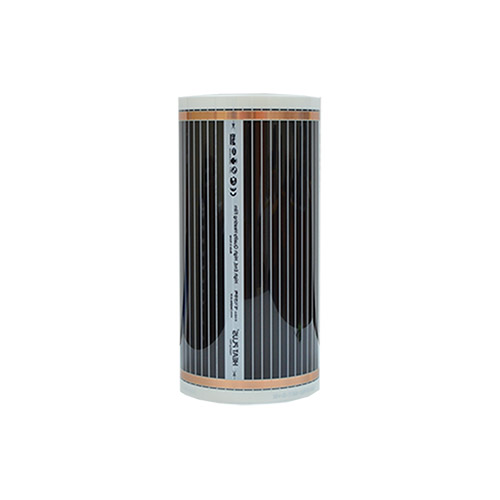
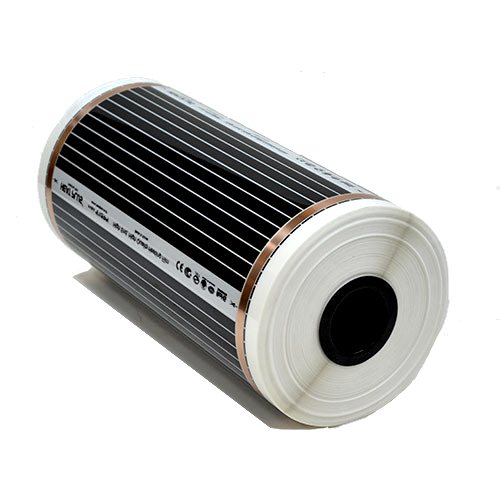
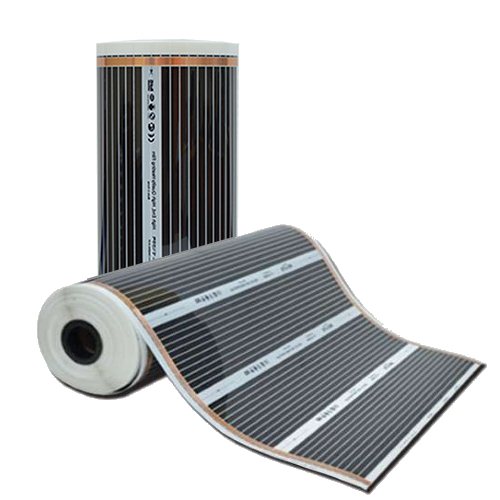




Heat Plus Standart film is used as a heating element in heating, heating and warm floors. In combination with other materials TM Heat Plus, it is ideal for laying under light coatings (linoleum, laminate, carpet, parquet, etc.). Also, it is possible to use a film under the screed, for laying heavy coatings (tiles, marble, etc.).
- laminate
- linoleum
- parquet board
- carpet
- cement screed
- +50°Сmax
- 150W/sq.m.
- 100 cmwidth
- 20 cmsection
- 220 V50 Hz
characteristics
| Power, W/linear. | 150 |
| Max. heating temperature,°С | 50 |
| Collection | Infrared floor under the laminate |
| Type | Standart |
| Application of the carbon layer | By bands |
| Operating voltage, V | 220 |
| Efficiency, % | 92 |
description
The minimum width in the standard film class is 100 cm. The maximum size in width in the class of standard films is used to heat the area of regular shapes. The use of a film of this standard width makes it possible to reduce the number of joints. The maximum film thickness is 150 W / m. This film is used to compensate for high heat losses in the room. The principle of the Heat Plus Standart heating film is based on the conversion of electrical energy into thermal infrared radiation. The key role in this process is played by the carbon layer, which serves as a converter of electricity to heat. The heating film does not heat the air, but the surrounding objects (floor, walls, furniture ...), which, subsequently, give their warmth to the air. During operation, the system does not burn oxygen, does not pollute the air and has a favorable effect on the microclimate in the room. People who are in the room where the Heat Plus Standart heating system is installed, always feel warm and comfortable thanks to not only the heat, but also the process of ionizing the air with film, due to the silver layer. The efficiency of a film-based heating system is more than 90% - this means that with the same energy consumption you get more heat than from any other heating systems. This is achieved by eliminating losses during the transfer of energy from the source to the heat radiator. Direct heating of the floor covering and surrounding objects, creates a comfortable temperature layer for human stay and reduces the need to heat the entire volume of air, in contrast to convection systems. Heat Plus infrared heating film consists of safe and environmentally friendly materials and is a film with a thickness of only 0.338 mm, consisting of 5 technological layers (unlike analogues, which consist of 2-3 layers). Carbon strips are united in sections of 20 cm in length. Carbon layer with a plasticizer is homogeneous, with great accuracy, applied to a PE (polyester) substrate. Overheating on films with a high specific power is eliminated. The most important part in the construction of the infrared film is the place of contact between the current carrying copper bus and the carbon heating layer. Reliable contact is provided by a silver tire, which completely covers the area of the copper conductor and ensures the absence of an air gap. Due to the high quality of the copper conductor, the lowest contact resistance (0.1 Om) is achieved.
characteristics
main
| Max power | 150 W/m2 ± 10% |
| Working temperature | 30-40 t, °С |
| Efficiency, % | 92 |
| unit of measurement | linear meter |
| Cutting | is a multiple of 20 cm in length |
| Width | 1,0 m |
| Film thickness | 0,338 mm |
| In a roll | 100 m |
| Roll weight | 48 kg |
| Type of film | Standard, uncoated, striped |
| Type of heating | Basic, additional |
| Guarantee | 15 years |
| Lifetime | 50 years |
| Composition | Polyethylene terephthalate (PET), copper conductor, carbon (carbon bands), polyethylene (PE) |
others
| Collection | Infrared floor under the laminate |
| Product of | South Korea |
| Manufacturer | HEAT PLUS |
| Guarantee | 15 yeaes |
| Vendor code | 310000 |
film structure heat plus
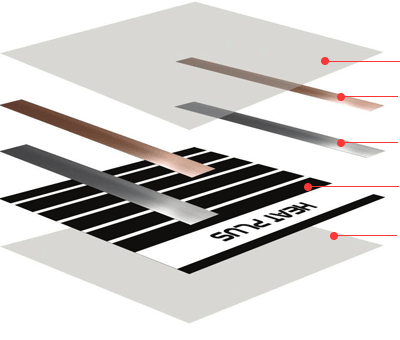
- polyethylene terephthalate
- copper tires
- silver tires
- carbon bands
- polyethylene terephthalate
features of the infrared film heat plus
- The material consists of 5 layers;
- It is heated to 50 degrees;
- Melting occurs at 160 degrees;
- The sections, of which the film consists, have a width of 0.2 m.
- On the material there are transparent areas that do not warm up. In these places, the heating cover is mounted to the surfaces;
- Infrared film can be laid under any cover including under the screed;
- The material has a high level of reliability at average market value.
technology of using infrared film spn-310-150
The heating material is arranged in such a way that heat can spread both upward and downward. In order to not waste energy in vain, a layer of thermal insulation (a substrate) is laid under the material. In our store you can buy branded thermal insulation materials, which you can see in the catalog of goods.
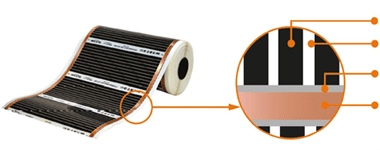
- carbon conductor
- polyethylene terephthalate
- silver tire
- copper bus
the heating film spn-310-150 is used for the following purposes
- Arrangement of a warm floor;
- Equipment of additional heating systems in the premises;
- Heated walls, loggias, balconies;
- Systems of heating of agricultural buildings, devices for growing plants;
- Organization of heating in pavilions, shops, kiosks, garages, etc .;
- Ceiling heating device .;
installation of infrared film spn-310-150
It is carried out in accordance with the instructions in the instructions that are attached to the material. For installation, the accompanying materials are used - thermal insulation substrate, protective coating, etc.
The thickness of all layers is different. It depends on the features of the finish material:
- For parquet and laminate flooring - 0.45 cm.
- Under the linoleum, carpet - 0.65 cm
- Under the cement screed - 0,22 cm
materials required for installation of a floor heating system
for laminate, parquet board
when working with infrared film, safety measures should be followed
forbidden
- To install at an air humidity above 70%, and also on wet surfaces
- You can not use as a thermal insulation substrate, covered with foil of aluminum, metal
- It is forbidden to mount an infrared film on the surface of metal, polystyrene foam, polystyrene, mineral wool, textiles
- Make material kinks in the 0.5 m section by the value of the right angle or to the kink
- It is impossible to impose an infrared film in two layers, to cross the cloths
- Also, infrared film is prohibited from cutting in unauthorized places and placing heavy, sharp objects on it

